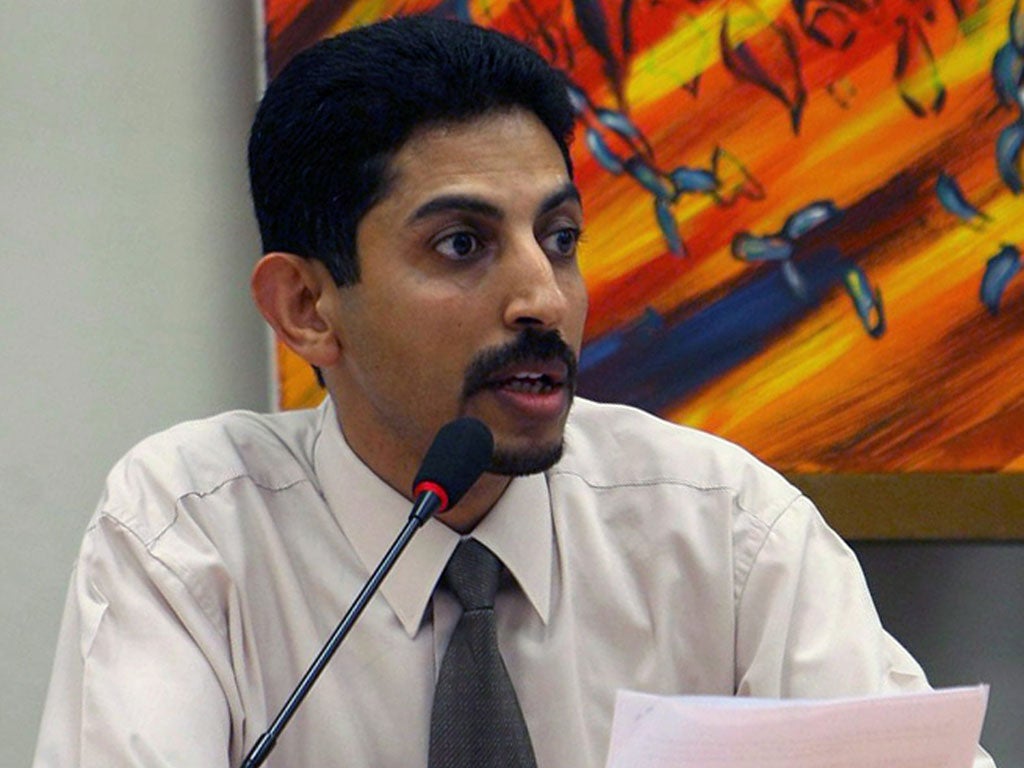Bahrain GP hunger striker ends his protest

The jailed Bahraini hunger striker Abdulhadi al-Khawaja – who emerged as the face of the protests against the Grand Prix in the Gulf nation earlier this year – was set to end his strike last night, 110 days after he began refusing food.
His lawyer, Mohamed al-Jishi, said Mr Khawaja had decided to begin eating again because he had succeeded in bringing attention to the cause of Bahraini protesters agitating for political change.
"The Bahraini cause has been raised clearly and comprehensively around the world," Mr Jishi said, explaining his client's decision. He said Mr Khawaja sought to highlight limits on freedom of expression in the tiny Gulf nation with his strike, which began on 8 February.
Bahrain's majority Shia, emboldened by Arab Spring protests elsewhere, launched an uprising more than 15 months ago seeking to limit the wide-ranging powers of the ruling Sunni dynasty. At least 50 people have been killed in the unrest.
Another prominent Bahraini rights activist, Nabeel Rajab, was released on bail yesterday, more than three weeks after his arrest on charges linked to anti-government protests in the kingdom.
Mr Khawaja and seven other activists were sentenced to life in prison last year as part of a government crackdown on anti-regime protests.
AP
Join our commenting forum
Join thought-provoking conversations, follow other Independent readers and see their replies
Comments
Bookmark popover
Removed from bookmarks